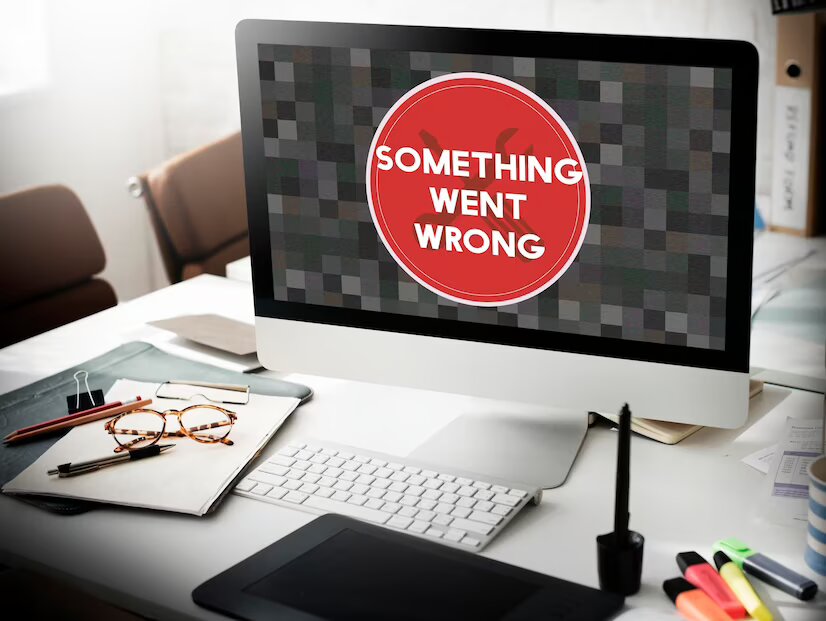Top Tips When Planning Your Security For Small Business
5 Mins Read
Published on: 12 November 2021
Last Updated on: 10 December 2024

toc impalement
Planning a robust security strategy is essential for protecting a small business and helping to ensure its longevity.
There is a lot to consider when it comes to business security. More so, given that security concerns span across both the physical and virtual aspects of the organization. According to the FBI, the rate of cybercrime increased by a staggering 300 percent during the pandemic. Therefore, cybersecurity must be a priority in protecting your small business.
However, that doesn’t make physical security any less critical, so just how can you plan an effective security strategy that protects your business as a whole?
Understanding Best Security Strategies

The advent of IoT has changed the very landscape of business. There is so much that can be done and achieved at the click of a button. This has made the world a smaller place to live in.
However, this is a double-edged sword. Even though there are some fantastic benefits, the openness of the IoT format can actually raise concerns for security for small business as well as big businesseses. Therefore, it is the need of the hour.
Here are some top tips for planning an effective security strategy for your small business. Try to follow these cybersecurity tips for small businesses and other variants to keep your business safe and sound.
Assess the Risks
Any effective security strategy begins with risk assessment. Determining the primary risks posed to your business will outline where your security strategy should focus primarily. Identifying your business’ greatest threats allows you to minimize vulnerability when considering different tools to use for your cyber security strategy.
Small businesses, for example, often have to work with limited budgets for operational tasks or projects. Due to these constraints, it is prudent to conduct a comprehensive risk assessment regarding materials or supplies that the business may purchase from third parties.
Install the Suitable Security Systems.
The physical security for small business depends largely upon the quality of the security system you install. Choosing the suitable business security cameras for your premises is critical to maximizing security and ensuring that security personnel can monitor risks effectively.
Technological advancements have surged in recent times, and there are a great many options to choose from. For example, touchless access control systems are popular not only for managing authorized access but also for reducing disease transmission.
Since the pandemic, hygiene is a top priority. As we all return to physical workspaces, so it’s essential to consider this when planning your business’s building security plan.
Don’t Skimp on Cybersecurity
As mentioned above, the rate of cyberattacks is on the rise. Therefore, it is more important than ever to implement robust protections to shield your small business from cyber threats.
The prevalence of remote working is also set to continue with the influx of remote and hybrid office models. Therefore, making it even more critical to evaluate the effectiveness of your security for small business strategies. Ensuring that all staff follow the same strict protocols, such as password policies, document sharing, etc., is essential.
For instance, If you are running a medical lab, you must ensure that the patient data and documentation are done by following the HIPAA rules and regulations. Lack of cyber security in protecting patient data comes under administrative compliance for any business related to healthcare. Also, you must install proper software on your PCs to ensure the data is protected from cyber threats at all costs.
Keeping an inventory of devices can further combat the added cyber-threats that remote work can pose. You should keep a detailed inventory of every device relating to the business, who has authorized access, whether it can leave the business premises, etc.
These best practices can help to prevent theft and subsequent data breaches from occurring. Maintaining this inventory accurately can also assist in determining the extent of lost data in the case of a device being stolen.
Merge your Physical and Cybersecurity Strategies

Traditionally, physical and cyber security for small business operated separately, yet as the need for protecting against data vulnerabilities rapidly grows, it makes sense to merge the two.
Key factors to consider when merging your physical and online/cyber security strategies include:
- Installing access control and video security in any spaces that house sensitive data
- Ensuring that your cyber and security personnel/teams collaborate and coordinate their security strategies at the planning stage
- Integrating cyber security policies into cloud-based physical security hardware
- Leveraging integrated data from two coordinated security fronts to enhance the overall understanding of vulnerabilities and how best to improve protections and procedures
Dispose of documents securely.
Your business security and data protection policies should include the secure disposal of documents. Staff can become either complacent or objective when deciding which documents require shredding, so it’s best to make it a policy that every document is put through a shredder when it is no longer needed. Holding on to sensitive information longer than necessary or disposing of it insecurely can put your business at risk.
Prioritize Staff Training
Instead of merging a little security-related information into your overall staff training, dedicate some time to providing security-focused training to all employees. This helps your staff to understand better the importance of diligently following all outlined security measures and how vital their role is in protecting the business.
Investing in security-focused training can be a challenge for smaller businesses. Still, in today’s digital climate, it’s essential to have staff that are well-equipped to protect your business as they work.
Final Thoughts
There are so many aspects to consider when it comes to business security, and these are just a few tips covering some of the significant points that shouldn’t be overlooked.
So long as you conduct a thorough risk assessment, you will be in a solid position to make the right choices regarding the details of your security strategy. Ideally, aim to make choices that future-proof your business as best as possible, as security technologies constantly evolve.
Additional Reading:


















Comments Are Closed For This Article